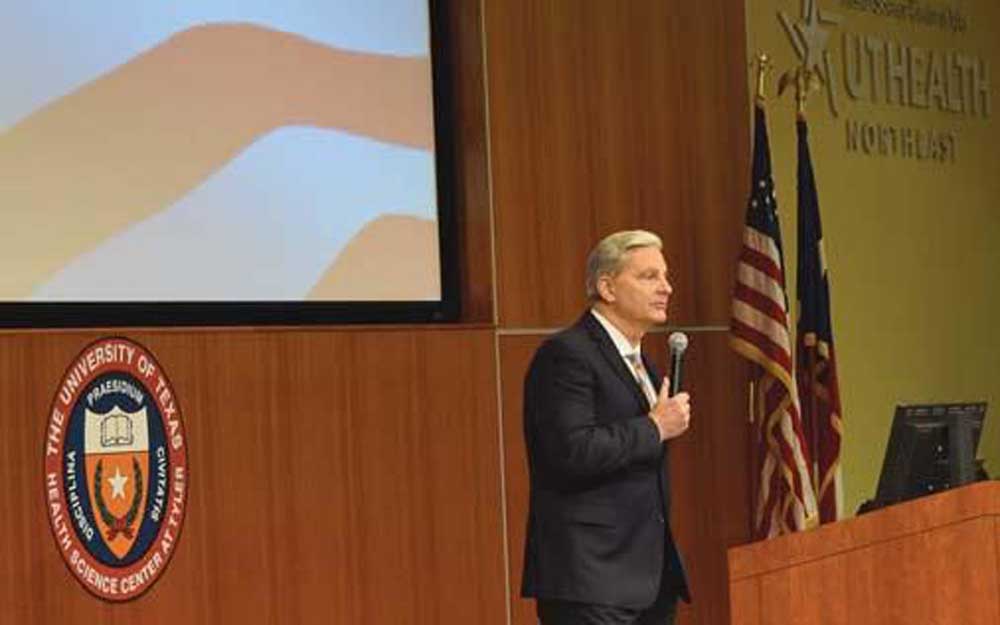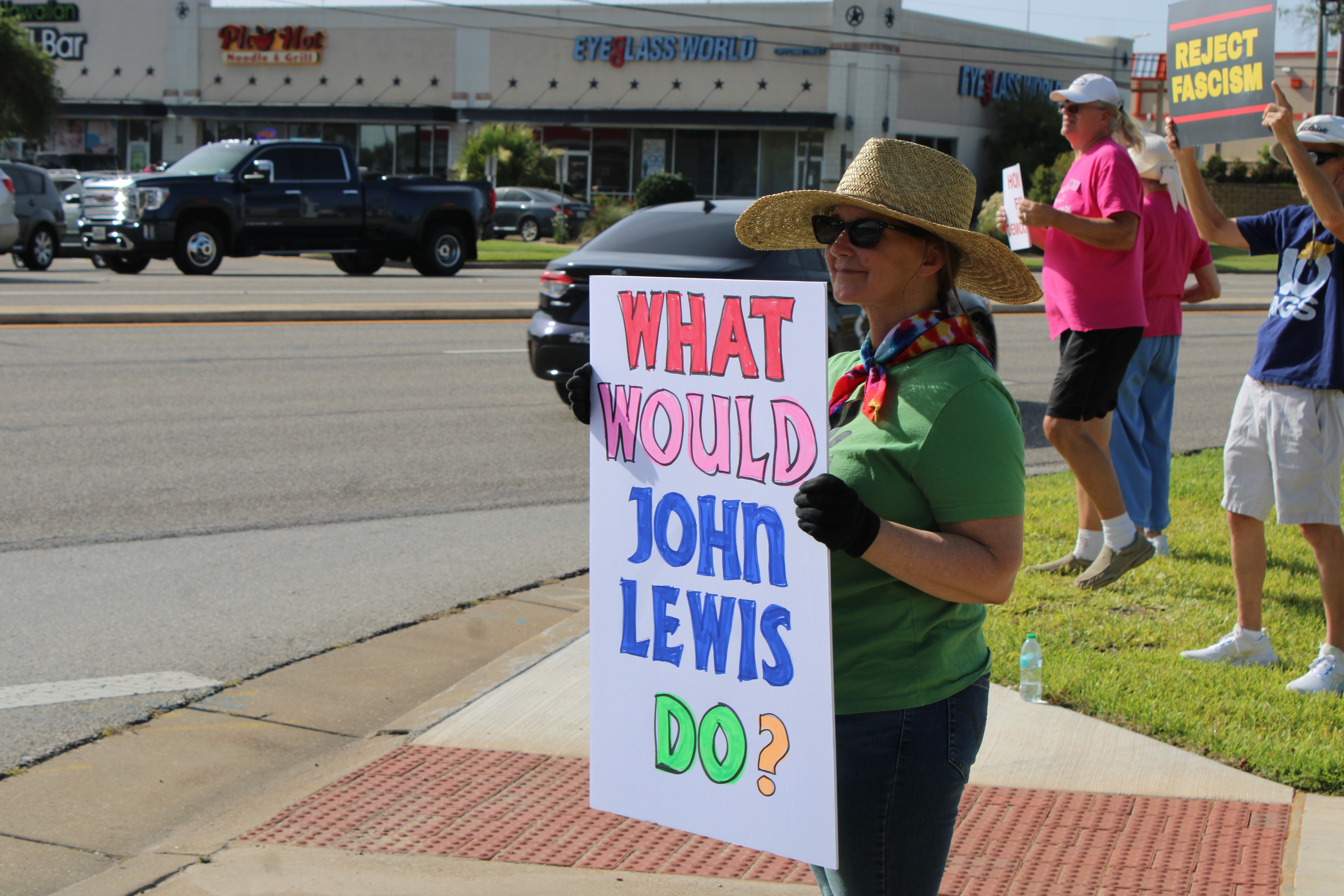Ceremony honors commitment, sacrifice of WWII soldiers
Published 6:30 am Sunday, April 15, 2018

- TONY CUCOLO was the keynote speaker at a program that honored the 75th anniversary of the establishment of Camp Fannin.
On the property of the University of Texas Health Science Center once sat the camp that prepared Lee Roy Williamson, 92, of Tyler, to be a soldier during World War II.
From 1943 to 1946, Camp Fannin served as an Infantry Replacement Training Center that reportedly trained more than 200,000 U.S. soldiers.
Trending
On the 75th anniversary of the camp’s establishment, the contributions of the soldiers who once trained there, as well as those who served the country during WWII, were honored inside the Louise and Joseph Ornelas Academic Amphitheater at the center on Saturday.
“That’s an humbling experience,” said Williamson, one of a handful of veterans who once trained at Camp Fannin and were able to attend the event. “We appreciate that people remember what took place.”
The importance of keeping alive the memory of the camp and the soldiers who trained there was a major theme throughout the program.
Tony Cucolo, associate vice chancellor for leadership development and veterans affairs for the University of Texas System, delivered the keynote address at the event.
Cucolo, a retired U.S. Army major general, said it was an op-
portunity he was pleased to accept and that he believed the event was very important.
Trending
“There is honor associated with the effort to keep such memories alive, especially when you gather at a place that reminds us of the horrible cost of armed conflict,” he said.
“In my mind, and I know in yours, too, the Camp Fannin monument is a monument primarily of sacrifice, but I wonder if you’re also aware that this monument is a strong, visible warning … to preparedness.”
Cucolo shared history and several details about some of the things that took place on 15,000 acres that once comprised Camp Fannin.
“Now most folks think ‘Infantry Replacement Training Center, sure that makes sense,'” he said. “‘We needed to train soldiers for the fight.’ But to a career soldier like myself, I focus on the words infantry replacement.
“When I hear those words, I think of, quite frankly, death,” he added. “…The men trained here replaced the dead. The men trained here knew they were going to the deadliest places on the WWII battlefield.”
Cucolo said he is very appreciative of the soldiers’ sacrifices.
“When I look at the memorial of Camp Fannin, I’m filled with admiration of the men who trained here and the sacrifices they made in particular,” he said. “They were thrown together as strangers, lived together, ate together, suffered through hard training together and established familial-like bonds and were then scattered to depleted units in the Pacific and in Europe.”
In closing, Cucolo asked that attendees leave the event inspired to live lives that honor those who once trained at the camp.
“When this great event breaks up, and we all start heading back to our busy, overscheduled, distracting lives, take one last look at the Camp Fannin Memorial and recommit to living a life worthy of that sacrifice,” he said.
TWITTER: @TMT_Augusta






